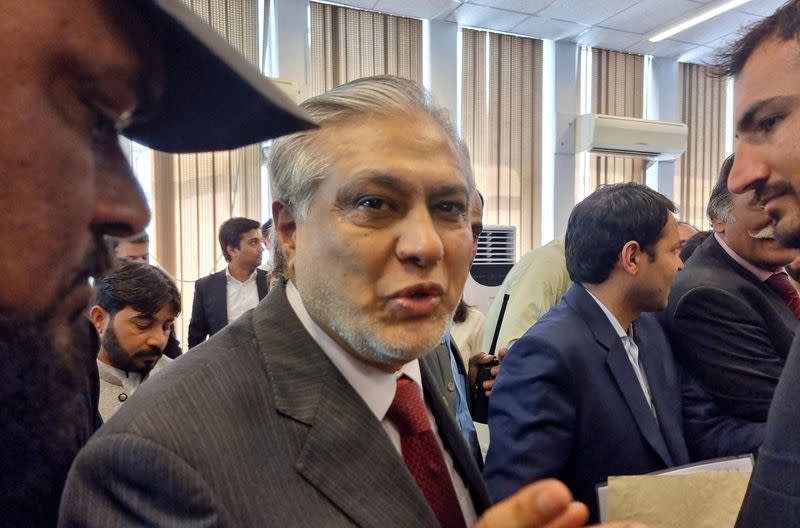Pakistan finance minister proposed as caretaker government head

By Asif Shahzad
ISLAMABAD (Reuters) -One of the main parties in Pakistan's ruling coalition has proposed that Finance Minister Ishaq Dar lead an incoming caretaker government, party sources said, to help push on with economic reforms agreed under an IMF deal.
Prime Minister Shehbaz Sharif has announced the coalition will dissolve parliament next month and hand over the reins to the caretaker administration to pave the way for national elections.
The Pakistan Muslim League-Nawaz (PML-N) has put forward Dar's name to its coalition partners, according to the sources who were not authorised to speak to media and declined to be identified.
"We think he could be the best bet to continue with the economic reforms agreed with the IMF," a PML-N member told Reuters.
Pakistan secured a badly-needed $3 billion short-term financial package from the International Monetary Fund last month, a much-awaited respite as it teeters on the brink of default.
The ruling coalition replaced former Prime Minister Imran Khan's administration after he lost a parliamentary vote of confidence in April 2022, having lost favour with the powerful military. The military denies having a role in his removal.
Khan's Pakistan Tehreek-e-Insaf (PTI) party said the caretaker government could not be impartial if it was led by Dar.
"If Ishaq Dar is to be made a caretaker prime minister, then there will be no elections but only a selection," PTI spokesman Farrukh Habib said.
The PML-N's main coalition partner, the Pakistan Peoples' Party, said it had not yet agreed on any name to head the caretaker government. Its leader, Sherry Rehman, told journalists a panel from her party would propose a candidate.
When asked about the proposal by Reuters, Dar said only: "Let's wait." Information Minister Marriyum Aurangzeb did not respond to a request for comment.
(Reporting by Asif Shahzad; Editing by Edwina Gibbs and Andrew Heavens)


